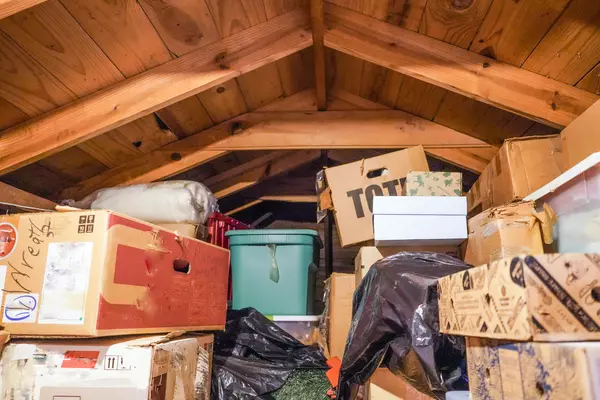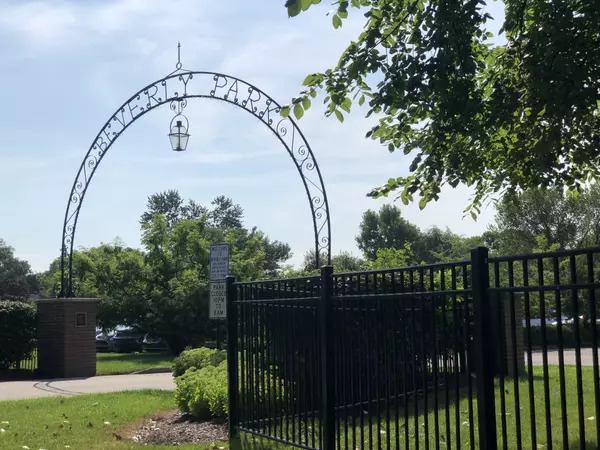

Pros and Cons of Choosing a Credit Union for Your Mortgage Loan
Often homebuyers will not think of a credit union when shopping for home financing. When it comes to securing a mortgage loan, credit unions may be an attractive alternative to traditional banks and mortgage lenders. Credit unions are owned by their members, and they are not-for-profit financial institutions that offer a range of financial products, including mortgage loans. We recommend weighing the pros and cons of a credit union before you decide a credit union is your choice for your mortgage loan. Pros of Choosing a Credit Union for Your Mortgage Loan: 1. Competitive Interest Rates: Since credit unions are not-for-profit organizations, they may pass on the savings to their members in the form of lower rates and fees. You may find that a credit union will offer the most competitive interest rates. 2. Personalized Service: Credit unions are known for personalized customer service and many times that is the reason many homebuyers will join a credit union. Credit unions typically have a smaller customer base, allowing them to provide more individualized attention and better service to borrowers. You may find it easier to communicate with loan officers and receive personalized guidance throughout the application process. 3. Community Focus: Credit unions are deeply rooted in the communities they serve. By choosing a credit union for your mortgage loan, you support a local institution that reinvests in the community, leasing to a positive impact on the local economy. 4. Member Benefits: Credit union members often enjoy additional benefits from their credit union membership including lower-cost insurance, lower fees and special banking products. If you choose to go with a credit union for your mortgage loan, you may see lower overall fees or maybe certain fees like appraisal fees waived altogether. 5. Flexible Underwriting: Credit unions may be more willing to work with home loan borrowers who have unique financial situations or non-traditional income sources such as self-employed. They often have more flexible underwriting criteria comparable to a bank or going through a mortgage broker. Cons of Choosing a Credit Union for Your Mortgage Loan: 1. Limited Branch and ATM Network: Credit unions typically have fewer branch locations and a small ATM network compared to regional or national bank. If accessibility to a branch office location or vast network of ATMs is important to you, you may find a credit union is not a fit for you. 2. Fewer Mortgage Products: Credit unions may offer a more limited range of mortgage products compared to mortgage bankers or mortgage brokers. Check to see what mortgage product options your credit union offers, especially if you have specific financing needs like a jumbo loan or a special program. 3. Membership Requirements: To become a member of a credit union, you must meet the specific eligibility criteria established by the credit union. That said, many credit unions have broad membership criteria, such as living in a particular community or working for a certain employer. In short, you need to qualify for membership in the credit union before applying for the mortgage loan. 4. Potential for Slower Processing: Some credit unions, especially the smaller ones, may have fewer resources and their technology could be dated compared to other larger mortgage lenders. Fewer resources and lack of technology may lead to slower processing times for mortgage loan applications. 5. Limited Online Services: Many credit unions have improved their online banking services in recent years, especially during the pandemic. However, some smaller credit unions may still offer fewer online tools and resources compared to larger banks. If you prefer banking online, make sure the credit union’s online platform and other online activities meet your financial needs. Overall, we believe that the pros outweigh the cons of a credit union, and we are strong proponents of the local credit union. We think most homebuyers should consider a credit union for their mortgage loan; however, each homebuyer is unique and a credit union is not for everyone. We have worked with a number of great credit unions including Michigan Schools & Government Credit Union, Lake Michigan Credit Union and Genisys Credit Union. If you would like more information on our preferred mortgage lenders, including credit unions, contact Jeff Higgins today.
Read More

Buyer's Agent | Why You Need One
1. PROFESSIONAL REPRESENTATION You don’t want to go it alone buying a home today. Simply put, it’s just too much work and there is too much at stake not to have representation. Whether it’s your health, your taxes or any financial matter, it is always wise to hire a specialist. You will find like with any specialist you will save time, make a better decision and save some money in the long-run. Buying a home is no different and that is why it is wise to engage a Buyer’s Agent for your homebuying needs. 2. PERSONALIZED SPECIALIST Your Buyer’s Agent will understand your real estate needs, goals and concerns. Having this personal relationship in buying a home with a savvy Buyer’s Agent leads to a better decision. This tight bond is built through open communication throughout the process. Your Buyer’s Agent will save you time by providing you all the details about the home before you see it so you don’t waste any of your precious time. In addition, your Buyer’s Agent will listen to your feedback and and concerns about each home. 3. GREAT HOME FASTER & WITH LESS EFFORT With an experienced Buyer’s Agent by your side, it will be much easier to find a home that meets your needs, negotiate a contract, and close the transaction. You won’t need to spend endless hours running around looking at homes that don’t meet your needs or trying to search online by yourself. The best Buyer Agents will be proactive and not just rely on the MLS to send you homes. What does this mean? The Buyer’s Agent will network and search for properties that are not currently on the market, helping you uncover gems. These gems may just be your next home. 4. STRESS-FREE HOME BUYING Buying a home today is not an easy process. Finding the right home is just the beginning and often the easiest part. Negotiating the purchase agreement is challenging and a seasoned Buyer’s Agent can save you thousands if he or she is a skilled negotiator. From title issues to inspection problems to appraisal shortfalls, the right Buyer’s Agent can expertly handle these issues enabling you to have a stress-free, fun home buying experience. If you are planning on buying a home in the next 12-18 months, contact Jeff Higgins today. It's never to early to start strategizing around the home buying process.
Read More

Downsizing is Rightsizing
We often hear the word downsizing. Downsizing in the real estate world means you trade your present house for a smaller or less-expensive one. An example would be moving into a condo that is smaller than your home. Another example would be moving to a new home similar to your current home but in a more affordable area of town. We help many clients who want to downsize in the traditional manner. This is a core part of our business. However, we are seeing more and more clients opt to ‘rightsize’ instead of downsize. What is Rightsizing? We define Rightsizing as a move to a new home that aligns with your current lifestyle and anticipated future lifestyle. Here are 3 recent client examples of Rightsizing: 1. Birmingham to Clarkston for Golf Jim and Meg raised their 2 kids in a nice Birmingham home with the classic 4 bedrooms and 2.5 baths. Both kids are adults and now married with young children. They kept hearing from their family and friends about ‘downsizing’. Rightsizing solution? Sell their 2,500 sf Birmingham home and buy a 4,000 sf ranch in a golf community. Both of them loved to golf and they were looking for a home that their kids would want to bring the grandkids to and enjoy. Plus they now had one-floor living and they could see themselves aging in place. 2. Rochester Hills to Birmingham Steve and Gwen lived in Rochester Hills for the last 30 years. Both were still working and both were able to work remotely. They never had children and they really didn’t need their big Rochester Hills home. Both were looking to enjoy life and be close to friends. Rightsizing solution? They decided to sell their house and buy a condo in Birmingham. The new condo is about 60% of the size of their house and it cost them 20% more than the sale price of their house. They now have less square footage and invested more in than planned but the Birmingham condo is a better fit for their lifestyle today. They can enjoy Downtown Birmingham and its restaurants and their favorite Griffin Claw. 3. Oakland Township to Bloomfield Hills Joan and Joe raised their 2 girls in Rochester area. They started in a 2,000 sf house and just before their girls entered high school they built a large home in Oakland Township. The plan was to stay in their dream home. After a while the large house was becoming less fun as the upkeep was becoming time consuming. In short, their dream house no longer fit their lifestyle. Rightsizing solution? They bought a condo in Bloomfield Hills that was nearly as large as their Oakland Township home. Joan and Joe loved their new location and are looking forward to the lock and go lifestyle of condo living. Whether you are thinking of downsizing or Rightsizing, the most important first step is to get clear on your current lifestyle and your anticipated future lifestyle and needs. Once you have clarity on what you want, your plan will fall into place. For more information on downsizing your home, contact Jeff Higgins today.
Read More

7 Downsizing Mistakes Even the Smartest Homeowners Make
Downsizing your home is a strategic move that can usher in a new chapter of simplicity, freedom, and excitement. Downsizing may save you some money or give you the ability to travel more or maybe both. We had a client tell us recently after they sold their large home in Rochester Hills, “we should have done it sooner”. I hear this often. However, even the savviest homeowners can stumble into pitfalls during this process. To help you sidestep these potential downsizing dilemmas, here are 7 common downsizing mistakes: 1. Underestimating Space Needs Last year a client sold her house in Bloomfield Hills and bought a condo close by. The house she was living in was way too big for one person. She bought a cute condo which she figured would be ideal for her, especially since she is a snowbird and spent the winter months in Naples. The problem? She liked to entertain her family and grandchildren in the summer when she was in Michigan. But in her new condo she didn’t have enough space to do so. Mistake: Opting for a significantly smaller space without considering your actual lifestyle or storage requirements. Solution: Conduct a thorough assessment of your belongings, daily routine, and future needs. Choose a downsized space that comfortably accommodates your essentials and allows room for flexibility and how you use your home. 2. Ignoring Emotional Attachment Recently a client bought a ranch in Rochester Hills after raising their family in a large home in Oakland Twp. They were happy to host their 3 kids and their families from across the country for Thanksgiving. Their kids loved the new house but were disappointed to see all new furniture and the kids were sad to see their childhood desks and other stuff had been donated. Mistake: Failing to acknowledge emotional attachments to possessions, leading to difficulties in letting go. Solution: Approach decluttering with sensitivity. Check with your adult children first before making decisions. Create a system to categorize items by importance or sentimentality, making it easier to decide what to keep, donate, or pass on to loved ones. 3. Rushing the Process Last winter a client of put their Oakland Township home on the market and it sold in 2 days. The couple was delighted and bought a smaller house close by. After living in the house for 6 months, they realized they made a mistake. Their new house was too big and they really regretted not buying a condo. Mistake: Hurrying through the downsizing process without adequate planning or time for thoughtful decisions. Solution: Create a comprehensive downsizing timeline that includes decluttering, packing, and organizing. Remember you can control the timeline. Take breaks to avoid burnout and ensure that you're making choices that are best for you 4. Not Factoring Future Needs After a divorce a client of ours bought a house in West Bloomfield so his kids could stay in the same school district. His nest was now empty so he decided to sell his house and buy a townhouse in Birmingham. He loved the active Birmingham lifestyle and the townhouse was going to be his “911” house. The problem? He ended up having knee replacement and then both hips replaced. He could no longer handle the stairs in his new townhome. Mistake: Overlooking potential changes in health or lifestyle that could impact your needs in the long run. Solution: Consider your future requirements and choose a downsized space that can accommodate potential physical changes or additional assistance, ensuring you won't need to move again in the near future. 5. Failing to Maximize Storage After raising 2 kids and 28 years in the same house, a client of ours was dreading downsizing but felt she needed to do it. She did not want to part with her stuff and wasn’t looking forward to a smaller space. Finally she did it. She called her kids and told them to get their stuff. She sold some furniture and donated some other stuff. She bought a smaller house and was happy. The problem? While her new floorplan was much better for her she didn’t have enough storage Mistake: Neglecting to maximize storage opportunities in your new, smaller space. Solution: Get creative with storage solutions. Utilize vertical space, invest in multi-functional furniture, and incorporate smart organization systems to make the most of every inch. Consider hiring a professional organizer. 6. Not Testing the New Lifestyle Sometimes downsizing sounds like a good plan but isn’t. Recently a couple in Bloomfield Hills sold their house and bought a condo also in Bloomfield. They sold their house for top dollar and got a great buy on their new condo. The problem? They didn’t like their new, small space. While they no longer needed their large house, it still fit their lifestyle and they had no challenges maintaining it. Downsizing wasn’t right for this couple. Ultimately, we sold the condo for them and helped them find a new house. Mistake: Transitioning to a downsized space without first experiencing the lifestyle changes it entails. Solution: Consider renting a smaller space for a brief period before committing to a permanent move. This trial period will help you gauge the practicality and comfort of the downsized lifestyle. 7. Overlooking Community Considerations After living in Troy for years, our client was ready for his next adventure. He had recently accepted a new position where he could work remote 100% of the time. He wanted downsize and sell his house and buy a condo in Bloomfield Hills. The problem? He missed his taking walks in his very social neighborhood and felt he was too far from Somerset Collection and restaurants on Big Beaver. He felt isolated in his new condo. Mistake: Focusing solely on the physical aspects of downsizing while neglecting the community and location. Solution: Research and explore the amenities, social opportunities, and neighborhood vibes of potential downsizing destinations. Choose a community that aligns with your lifestyle and interests Conclusion Downsizing can be a liberating and enriching experience, but it requires careful planning and consideration to avoid common pitfalls. And remember there is no rule that says you must downsize. We are seeing many of our private clients opt to age in place. If you do opt to downsize, start by assessing your needs. Acknowledge emotional attachments, pace the process, consider future requirements, maximize storage, test the lifestyle, and prioritizing community aspects. You can make informed decisions that lead to a successful downsizing transition. For more information on downsizing your home, contact Jeff Higgins today.
Read More
Categories
Recent Posts










